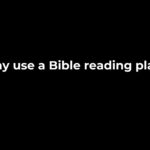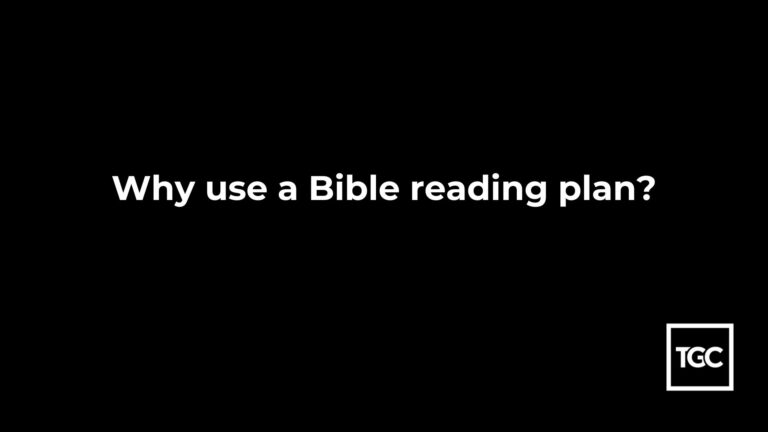I recently preached a sermon on Jesus’ teaching about truthfulness as found in the Sermon on the Mount. The message generated a surprising number of follow up questions; the most common of which was “Is it ever ok for a Christian to lie?” I addressed that question in a previous blog that you can find here. A related question that came up in some of those same conversations has to do with matters of definition. “What exactly does and does not constitute a lie?”
Perhaps it would be helpful to begin with the negative.
What Does Not Constitute A Lie?
1. Simple mistakes
As I get older, I find it increasingly difficult to keep track of the minor details associated with some of my favourite childhood stories. I remember the main themes and I usually remember the punchline, but exact locations, the full cast of characters and the secondary plotlines are increasingly elusive. I told a story recently about an embarrassing failure of mine at a track and field event that resulted in a trip to the emergency room for several stitches. I got the gist of it right and I preserved what seemed to me to be the moral, but in telling the story I presented it as having taken place in High School, but several hours later I remembered the name of the teacher who drove me to the ER and I recalled that she was a teacher I had for track in Grades 7 and 8, pushing the story at least a year or two further back in my timeline.
Did I tell a lie?
Or did I simply make a mistake – the sort of mistake that will unfortunately become increasingly common as I get older?
My reading of the Old Testament inclines me to believe that God is very gracious toward human weakness and frailty.
“As a father shows compassion to his children, so the LORD shows compassion to those who fear him. For he knows our frame; he remembers that we are dust.” (Psalm 103:13–14 ESV)
The Bible says that the Lord judges us like a father judges his kids. I assume that means that he is inclined toward seeing things in a positive light; he is prepared to give us the benefit of the doubt and he is sensitive to our stage appropriate weaknesses. Therefore, I don’t believe that simple mistakes or lapses in memory will be considered by God as lies.
2. Selective sharing
It is not a sin to be selective with respect to the information you choose to share in sensitive situations. When God told Samuel to go and anoint a successor to king Saul, whom the Lord had rejected, Samuel feared that news of his actions would reach the ears of the king and his life would be forfeit. The Lord spoke to him and said:
“Take a heifer with you and say, ‘I have come to sacrifice to the LORD.’ And invite Jesse to the sacrifice, and I will show you what you shall do. And you shall anoint for me him whom I declare to you.” (1 Samuel 16:2–3 ESV)
God told Samuel to be cagey in terms of what he said about the reason for his visit to Bethlehem. Had he said: “I am here to anoint the next King of Israel!” he may not have survived the week, so he foregrounded the secondary reason for his visit and he conducted his primary business under a shroud of secrecy.
Did Samuel tell a lie?
Worse yet, did God counsel Samuel to tell a lie?
Obviously not!
Being careful about what information we share with others is an act of prudence and does qualify as dishonesty.
When my wife and I were getting licenced as Foster Parents nearly 25 years ago we decided going into the interview that we would not lie but neither would we be overly forthcoming on particular issues that might cause us to be disqualified. When we were asked how we discipline our biological children I spoke at length about the importance of communication and consistency. I talked about how boundaries make children feel safe and about how routine is the key to a peaceful and well-ordered home. I waxed eloquent on these matters for several minutes and never even came close to addressing the issue that our interviewer was interested in. I think I tired her out because she simply moved on to other, less controversial topics.
Did I lie to the worker from CAS?
No.
I just didn’t volunteer any information that I wasn’t sure how she would process. In other words, I did exactly what God counselled Samuel to do. Holding your cards close to the vest, in many circumstances, is the better part of wisdom and should not be considered by any Bible reading person as a lie.
3. Changing your mind
Jesus is occasionally accused of lying because of a turn of events that the Bible records in John 7. His brothers advised him to go up to Jerusalem for the festival so that he could gain a following among the many pilgrims who would be gathered there. Jesus replied:
“You go up to the feast. I am not going up to this feast, for my time has not yet fully come.” After saying this, he remained in Galilee. But after his brothers had gone up to the feast, then he also went up, not publicly but in private.” (John 7:8–10 ESV)
Did Jesus lie to his brothers?
He said that he wasn’t going to go, but then later, he did go. D.A. Carson provides some helpful clarity. He says:
“The assumption in this verse is that the Father has signalled Jesus in some way, so Jesus goes to Jerusalem, leaving Galilee for the last time before the cross. Even so, his journey is marked by maximum discretion, exactly the opposite of what the brothers had in mind.”[1]
Jesus declined the invitation of his brothers to go up to the festival for the reasons they had cited, but then later, he was told by God to go for reasons very different than those suggested to him earlier. That isn’t a lie, that is a demonstration of Jesus’ true humanity. Like all human beings, Jesus was subject to the Father’s authority and direction. Like all human beings Jesus was subject to changes in circumstance. As such, according to the Bible, from time-to-time Jesus made changes to his plans.
If it rains tomorrow I may not be able to cut the grass as I had said that I would. If I hit traffic on the way to the airport, I may arrive at my destination on a different airline than I had originally intended. Modifying your plan or changing your mind in response to new information or unforeseen circumstances is something that human beings occasionally have to do. It’s not a sin and it should not be considered as a lie.
What Does Constitute A Lie?
1. Stating as fact what you know to be false
The precise wording of the 9th commandment is as follows:
“You shall not bear false witness against your neighbor.” (Exodus 20:16 ESV)
The Bible prescribes serious consequences for anyone who offers false testimony in court. Deuteronomy 19:16-20 says:
“If a malicious witness arises to accuse a person of wrongdoing, then both parties to the dispute shall appear before the LORD, before the priests and the judges who are in office in those days. The judges shall inquire diligently, and if the witness is a false witness and has accused his brother falsely, then you shall do to him as he had meant to do to his brother. So you shall purge the evil from your midst. And the rest shall hear and fear, and shall never again commit any such evil among you.” (Deuteronomy 19:16–20 ESV)
In 1 Kings 21 when Ahab wanted a vineyard that the owner Naboth refused to sell, he directed two worthless men to falsely accuse him of blasphemy at a festival. The accusations were believed, Naboth was stoned, the dogs licked up his blood and Ahab took possession of the vineyard.
But the Lord did not approve.
He sent Elijah the prophet to speak these words to the king:
Thus says the LORD: “In the place where dogs licked up the blood of Naboth shall dogs lick your own blood.” (1 Kings 21:19 ESV)
God watches over his Word to perform it and he had made it very clear that false accusations would not be tolerated within the covenant community.
Words are powerful. People’s reputations are on the line. Lives are on the line and therefore the people of God must be radically committed to speaking the truth. This applies to what they speak and also to what they share and spread. Exodus 23:1 says:
“You shall not spread a false report.” (Exodus 23:1 ESV)
When you pass along unsubstantiated claims on the internet or you retweet an accusation that has not been verified you have broken the 9th commandment. Based on the story of Ahab, this is something you should rectify immediately.
2. Making a promise you don’t intend to keep
While it is not a sin to change your mind in response to new information or circumstances, it is a sin to make a promise you have no intention of keeping. That is actually the immediate target for Jesus’ teaching on oaths in the Sermon on the Mount. He said:
“Again you have heard that it was said to those of old, ‘You shall not swear falsely, but shall perform to the Lord what you have sworn.’ But I say to you, Do not take an oath at all, either by heaven, for it is the throne of God, or by the earth, for it is his footstool, or by Jerusalem, for it is the city of the great King. And do not take an oath by your head, for you cannot make one hair white or black. Let what you say be simply ‘Yes’ or ‘No’; anything more than this comes from evil.” (Matthew 5:33–37 ESV)
In much of the Sermon on the Mount, Jesus is contrasting his teaching on righteousness with the version being taught by the scribes and Pharisees, and so it is here. The Pharisees had all kinds of elaborate rules in terms of which oaths were binding and which were not. For example, they said that if you swear by Jerusalem then your oath wasn’t binding, but if you swear toward Jerusalem then it was binding. Similarly, if you swear by the temple then your oath wasn’t binding, but if you swear by the gold of the temple, then it was binding. They invented a system that they were the moderators of so that they could appear to be telling the truth or making a good faith promise, when in fact they were not.
Jesus rejects that sort of nonsense out of hand. “My people aren’t going to be doing that. My people are going to tell the truth, straight up, with no fingers crossed behind their backs.”
That’s what he means when he says:
Let what you say be simply ‘Yes’ or ‘No’; anything more than this comes from evil.” (Matthew 5:37 ESV)
Making a promise you have no intention of keeping is a lie. Few things are more straightforward in the New Testament than that.
3. Intentionally misleading or exaggerating
The story of Ananias and Sapphira in the New Testament functions as a cautionary tale. The wider context suggests that the couple was jealous of the praise and acclaim heaped upon Barnabas for his generous donation to the church. Acts 4:36-37 says:
“Thus Joseph, who was also called by the apostles Barnabas (which means son of encouragement), a Levite, a native of Cyprus, sold a field that belonged to him and brought the money and laid it at the apostles’ feet.” (Acts 4:36–37 ESV)
Wishing to be thought as generous and benevolent as Barnabas, Ananias and Sapphira sold a piece of property and intimated that they were giving 100% of the proceeds to the church, when in fact, they were not.
The Holy Spirit was not amused.
The Apostle Peter said:
“Ananias, why has Satan filled your heart to lie to the Holy Spirit and to keep back for yourself part of the proceeds of the land? While it remained unsold, did it not remain your own? And after it was sold, was it not at your disposal? Why is it that you have contrived this deed in your heart? You have not lied to man but to God.” When Ananias heard these words, he fell down and breathed his last. And great fear came upon all who heard of it.” (Acts 5:3–5 ESV)
The Bible makes it very clear that the sin in this story was not the decision to give less than 100% of the purchase price to the church. Peter says emphatically that the property belonged to them and they were free to do with it whatever they wanted to do. It would not have been a sin for them to have sold the property and to have kept 50% or 90% or 100% of the proceeds. The sin was exaggerating the percentage they had chosen to give.
There is always a temptation to exaggerate our role in events or to embellish the nobility of our actions. We want to appear heroic. We want people to think well of us. That is understandable but that is sin.
It is a lie and God’s people need to be known as people of truth.
Lord, help!
Soli Deo Gloria,
Pastor Paul Carter
To listen to the most recent episodes of Pastor Paul’s Into The Word devotional podcast on the TGC Canada website see here. To access the entire library of available episodes see here. You can also download the Into The Word app on iTunes or Google Play.
[1] D. A. Carson, The Gospel According to John, Pillar New Testament Commentary. Accordance electronic ed. (Grand Rapids: Eerdmans, 1991), 309.
















